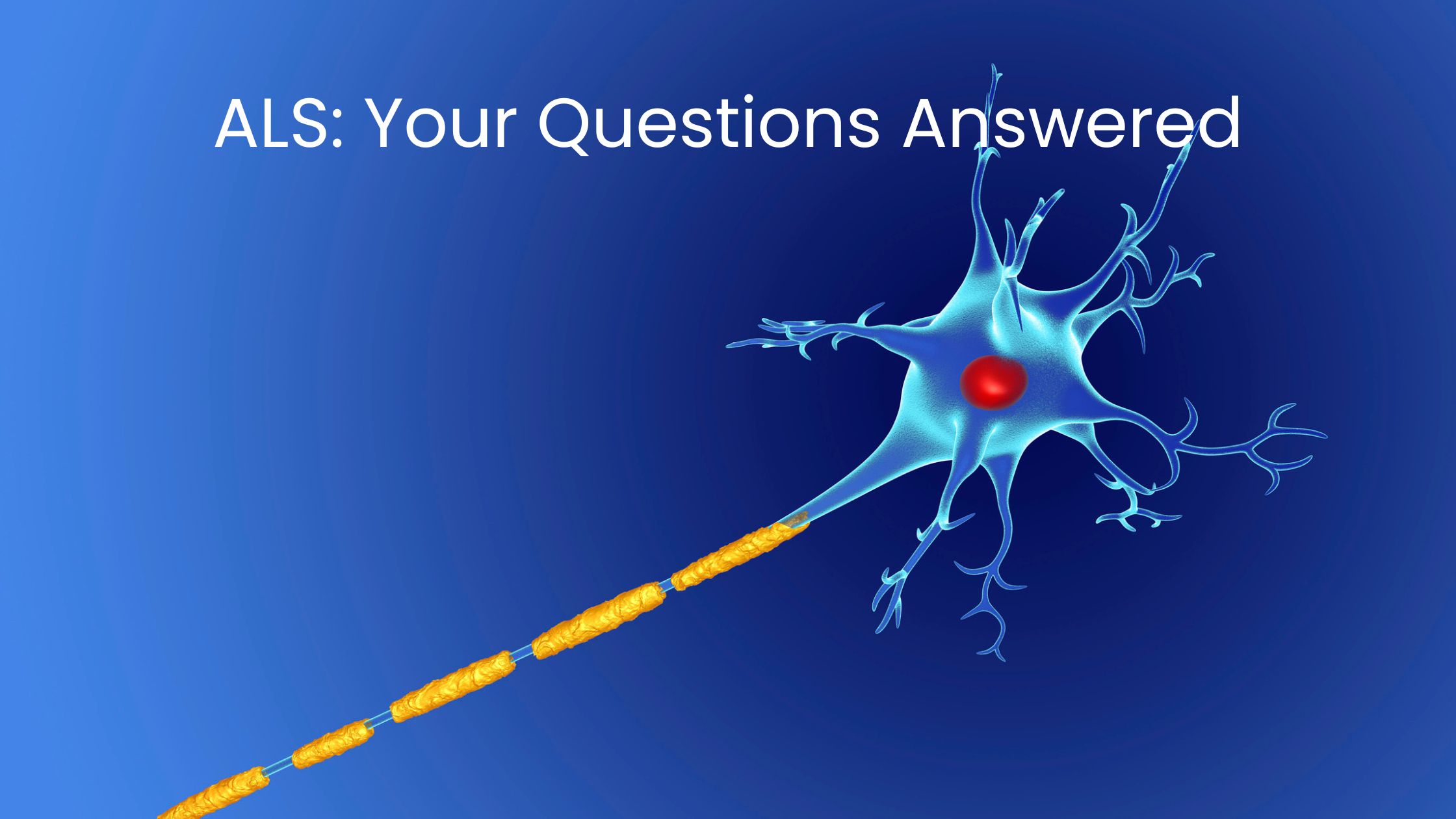ALS 101: Your Most Frequently Asked Questions Answered
Amyotrophic Lateral Sclerosis (ALS), often referred to as Lou Gehrig’s disease, is a progressive neurodegenerative disease that affects nerve cells and muscle control. This blog post aims to shed light on common questions about ALS, providing information and understanding to patients, tips to caregivers, and those seeking to learn more about this condition.
Section 1: Understanding ALS
Q: What is ALS? A: ALS is a progressive neurodegenerative disease that affects nerve cells and muscle control. Motor neurons, which control the muscles that allow us to move, speak, eat, and breathe, gradually deteriorate in people with ALS.
Q: What causes ALS? A: In most cases, the cause of ALS is unknown. About 10% of cases are familial, meaning they are inherited. Researchers are actively investigating genetic and environmental factors that may contribute to the development of ALS.
Q: Is ALS hereditary? A: While most cases of ALS are sporadic, meaning they occur randomly, a small percentage of cases are familial. If you have a family history of ALS, it’s important to consult with a healthcare professional for genetic counseling.
Q: How is ALS diagnosed? A: There is no single test to diagnose ALS. Doctors typically rely on a combination of factors, including medical history, physical examination, and nerve conduction studies. Other tests, such as MRI and blood tests, may be used to rule out other conditions.
Section 2: Symptoms and Progression of ALS
Q: What are the early symptoms of ALS? A: The initial symptoms of ALS can vary from person to person but often include muscle weakness, twitching, and cramping. Difficulty with walking, climbing stairs, or carrying objects may also occur.
Q: How does ALS affect speech, swallowing, and breathing? A: As ALS progresses, it can affect the muscles involved in speech, making it difficult to talk clearly. Swallowing problems can also develop, leading to choking or weight loss. Eventually, ALS can weaken the muscles involved in breathing, requiring respiratory support.
Q: What are the cognitive changes associated with ALS? A: While ALS primarily affects physical function, some people with ALS may experience cognitive changes, such as difficulty with memory, planning, or decision-making. However, it’s important to note that dementia is not a common symptom of ALS.
Q: How rapidly does ALS progress? A: ALS is a progressive disease, meaning it gradually worsens over time. The rate of progression varies significantly between individuals. While there is no cure for ALS, available treatments can help manage symptoms and improve quality of life.
Section 3: Treatment and Management of ALS
Q: Is there a cure for ALS? A: Currently, there is no cure for ALS.
Q: What are the available treatments for ALS? A: Several treatments can help manage symptoms and slow the progression of the disease. Medications, such as riluzole, may slow the progression of ALS, while other drugs can help manage muscle spasms and pain.
Q: How can I manage pain and fatigue associated with ALS? A: Pain and fatigue are common symptoms of ALS. Pain management strategies may include medications, physical therapy, and relaxation techniques. Fatigue can be addressed through energy conservation techniques and assistive devices.
Q: What are the options for respiratory support? A: As ALS progresses, respiratory muscles may weaken, making it difficult to breathe. Non-invasive ventilation (NIV) can help support breathing and improve quality of life.
Q: How can I maintain nutrition and hydration? A: Swallowing difficulties can lead to weight loss and malnutrition in people with ALS. A speech-language pathologist can provide swallowing therapy, and a registered dietitian can recommend appropriate dietary modifications.
Section 4: Daily Living and Care
Q: How can I adapt my home to accommodate ALS? A: Making home modifications can help people with ALS maintain independence and safety. This may include installing ramps, grab bars, and widening doorways.
Q: What are the emotional and psychological challenges of living with ALS? A: Living with ALS can be emotionally and psychologically challenging. Support groups, counseling, and therapy can help individuals and their families cope with the disease.
Q: What support services are available for ALS patients and their families? A: Various support services are available for people with ALS and their caregivers. These may include home healthcare, respite care, and financial assistance.
Q: How can I maintain independence as ALS progresses? A: Assistive devices and technology can help people with ALS maintain independence for as long as possible. These may include power wheelchairs, communication devices, and environmental control systems.
Section 5: Research and Clinical Trials
Q: What is the current state of ALS research? A: Researchers are actively working to understand the causes of ALS and develop new treatments. Ongoing research focuses on genetics, immunology, and potential therapeutic targets.
Q: Are there any promising new treatments or therapies in development? A: While there is no cure for ALS, promising research is underway, including gene therapy, stem cell therapy, and immunotherapy.
Q: How can I participate in ALS clinical trials? A: Participating in clinical trials can offer access to experimental treatments and contribute to the development of new therapies.
Conclusion
Living with ALS presents significant challenges, but understanding the disease is crucial for managing symptoms and improving quality of life. This blog post has provided an overview of ALS, addressing common questions and offering information on available resources. It’s important to remember that each person’s experience with ALS is unique, and seeking support from healthcare professionals and support groups is essential.
Disclaimer: This blog post is intended for informational purposes only and should not be considered as medical advice. Please consult with a healthcare professional for any health concerns or questions.
Reference:
- https://www.upstate.edu/news/articles/2022/2022-08-11-als2.php
- vasectomyreversal-nyc.com
- tigernutsusa.com




